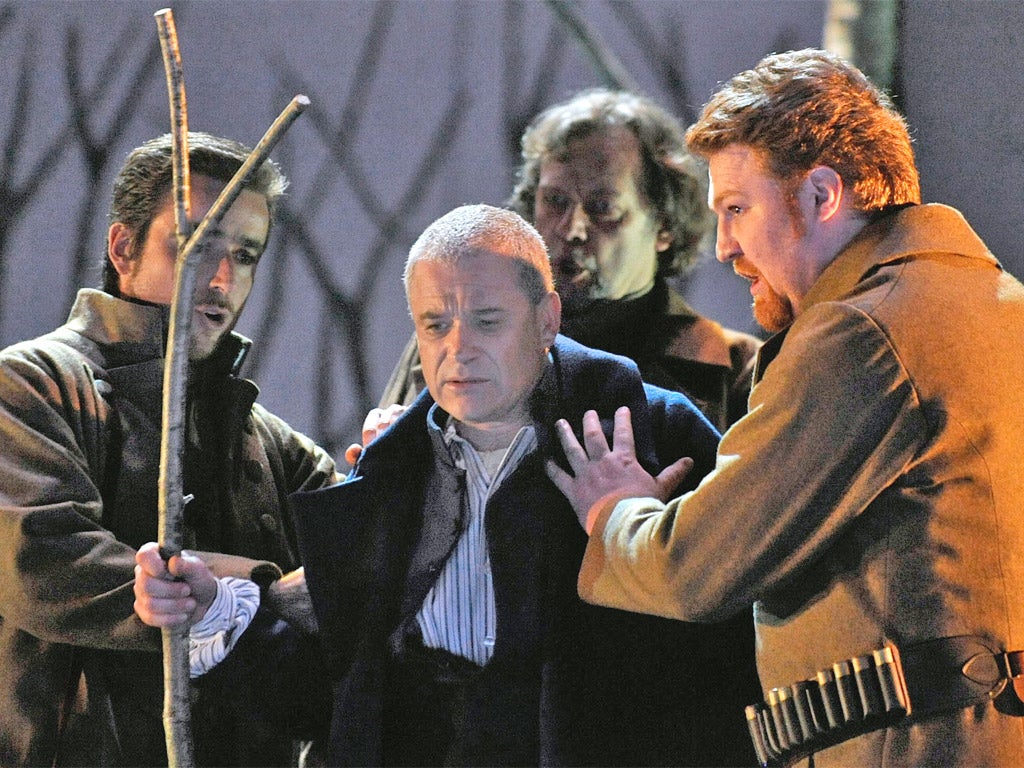Israeli orchestra strikes note of controversy with Wagner work

Your support helps us to tell the story
From reproductive rights to climate change to Big Tech, The Independent is on the ground when the story is developing. Whether it's investigating the financials of Elon Musk's pro-Trump PAC or producing our latest documentary, 'The A Word', which shines a light on the American women fighting for reproductive rights, we know how important it is to parse out the facts from the messaging.
At such a critical moment in US history, we need reporters on the ground. Your donation allows us to keep sending journalists to speak to both sides of the story.
The Independent is trusted by Americans across the entire political spectrum. And unlike many other quality news outlets, we choose not to lock Americans out of our reporting and analysis with paywalls. We believe quality journalism should be available to everyone, paid for by those who can afford it.
Your support makes all the difference.A seven-decade old cultural taboo will be broken next month when an Israeli symphony orchestra will play works by Richard Wagner inside the country for the first time since the state's foundation in 1948.
The Eretz Israel orchestra, the pre-state forerunner of the world-famous Israel Philharmonic, stopped playing the music of the German composer, who was notorious for expressing anti-Semitic views, in 1938 after the Nazis' Kristallnacht pogrom of Jews. Attempts to include Wagner, who was also Hitler's favourite composer, in Israeli concert repertoires since then have always been thwarted by heated opposition.
When the conductor Daniel Barenboim used an encore to lead the visiting Berlin Staatskapelle orchestra in playing the overture of Tristan Und Isolde at a Jerusalem concert in 2001, there were angry walkouts and he was widely denounced from the then Prime Minister, Ariel Sharon, down. The concert will be part of a day of discussion and music at Tel Aviv University. It will explore the inspiration the Zionist visionary, Theodor Herzl, drew from Wagner's opera Tannhäuser when he was writing the first draft of his seminal book The Jewish State.
The event, which will also consider the interpretations of Wagner by the conductor Arturo Toscanini, a noted anti fascist, is the idea of the Israel Wagner Society, which includes Holocaust survivors among its members.
The founder of the society, Jonathan Livny, told The Independent yesterday that although his father, who was a Holocaust survivor, brought a Wagner record to Israel, his first real encounter with the composer was in Britain, as a 14-year-old with a portable cassette player at the now defunct Jewish boarding school, Carmel College in Oxfordshire. "I remember thinking, here I am, an Israeli kid on the banks of the Thames, near Oxford, listening to this goddamned terrible man who writes God's music."
Mr Livny, 65, said he had circumvented the long-held view that publicly subsidised orchestras should not play Wagner by ensuring that each of the 100 musicians who will play Der Ring des Nibelungen, The Valkyrie and other works will be privately engaged as individuals. He pointed out that the Israeli train system uses German trains and that Israel's Navy deploys German-built submarines. "Wagner is the last boycott," he said. "I imagine Admiral Dönitz must be turning in his grave to think that Jewish marines are sailing German U-boats."
He said that those who were most vociferous in calling for a boycott of Wagner "don't listen to classical music anyway". He added: "The important thing is that this is good music, and I am against any boycott of that regardless of who wrote it. Also you can't understand modern music without listening to Wagner. Schoenberg, Mahler, all these composers were disciples of his. It's like saying 'don't listen to Beethoven'. He made his imprint on music. And so did Wagner."
Mr Livny referred to the recent row in Britain over Israel's Habima Theatre's staging of The Merchant of Venice, declaring: "I am against cultural boycotts of any kind and people who live in glass houses shouldn't throw stones. You can't do everything to ensure that the Habima plays in London and then say 'don't listen to Wagner'.
Join our commenting forum
Join thought-provoking conversations, follow other Independent readers and see their replies
Comments